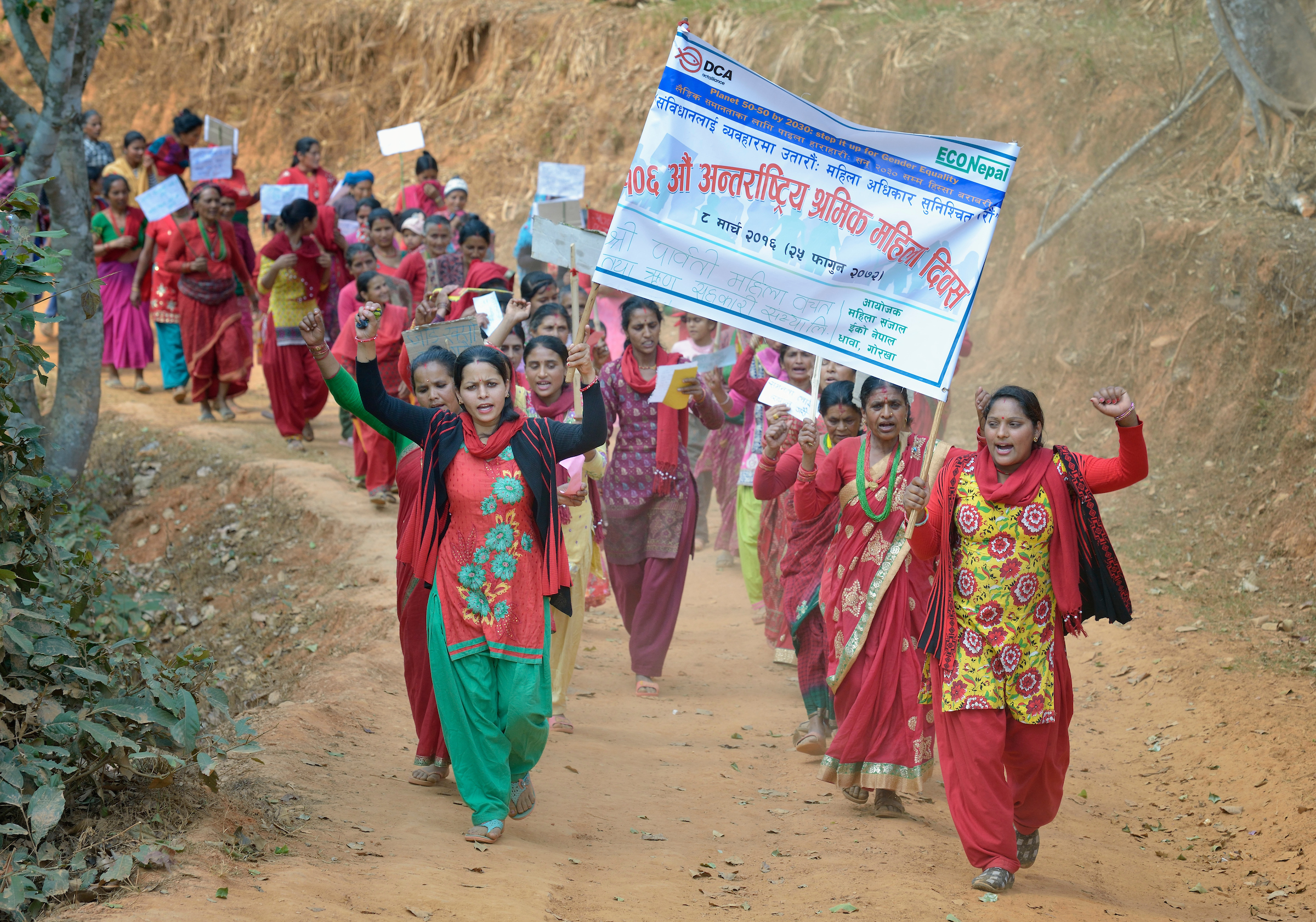
On 26th March, the 65th UN Commission on the Status of Women concluded with the adoption by UN Member States of the Agreed Conclusions. During a global pandemic, the Commission was able to bring together Member States, UN Agencies, and civil society virtually. ACT Alliance worked with a delegation of 50+ global gender advocates, who contributed to Official Sessions, Side and Parallel Events, amplifying strong faith voices for gender justice throughout the two week commission.
The Agreed Conclusions renew the commitment of Member States to accelerate action to enable women and girls’ full and effective participation in leadership and decision-making in public life, and the elimination of sexual and gender-based violence.
In the concluding session, the Executive Director of UN Women, Phimzile Mlambo-Ngcuka, said: “The women of the world have made it very clear that the past and the status quo have not met their need for gender equality.”
One area of progress in the Agreed Conclusions is targeted action to enable young women and girls to contribute to public life. ACT delegate and CASA representative, Vrushali Kadam, followed the discussions on youth at CSW: “Youth form one quarter of the world’s population, therefore our pragmatic inclusion in major local, regional and international agreements, alliances and policies is imperative. We can bring our lived experiences, perspectives, observations and ever evolving ideas to the table, while also building making intersectional, safe spaces for others to join us and provide solutions.”
As ACT delegate and Fundação Luterana de Diaconia representative, Renate Gierus, argues: “In Brazil, during the pandemic, femicide grows every day. At the UN Commission on the Status of Women, we have been advocating for stronger action on gender-based violence. Misogynistic attitudes that have legitimised these behaviours must be tackled at every level, to ensure that the autonomy, equality and freedom of women is respected.” As Chile noted in their concluding remarks, it is important that femicide is recognised in the Agreed Conclusions.
On the final day, ACT delegate and Community World Service Asia representative, Palwashay Arbab, delivered an Oral Statement: “Religion and culture have a strong influence on the definition of social norms, including those relating to gender. Religious leaders and faith communities must therefore be included as critical actors to engage in transforming harmful norms.” ACT celebrates that Faith-Based Organisations are included in the Agreed Conclusions as a relevant stakeholder. This was a key advocacy message amplified throughout our participation.
While there are some reasons to celebrate, the UN Commission on the Status of Women 65 also serves as an awakening on how fundamentalist approaches and ideas are gaining strength. A few Member States were able to monopolise and derail progress made. This has a direct impact on people claiming their human rights and on gender-based discrimination around the world.
We witnessed the pushback against and subsequent erasure of the phrase ‘Sexual and Reproductive Health and Rights’ in the negotiations around the Agreed Conclusions. As ACT delegate and ACT Ubumbano representative, Zanele Makombe states: “It is vital that we continue to advocate for SRHR. Recognising SRHR in local to global agreements provides opportunities for people to better understand and make informed choices about their sexual health, sexual rights, reproductive health and reproductive rights. As we have shown at CSW in our events and advocacy, our faith and our beliefs have a way of affirming our SRHR choices.”
ACT was advocating for more ambitious language in the document, in particular, giving recognition to women and girls ‘in all their diversity’ and recognising the diversity of families. The pushback during CSW65 may be identified as a pause, rather than progress, on our road to gender equality. ACT will continue to advocate with members, civil society, UN Agencies and Member States, for the fulfilment of all human rights. Working with critical stakeholders to accelerate action for gender justice at every level.
Beginning on March 29, 2021, a smaller ACT delegation will be participating in the Generation Equality Forum in Mexico. This will be an opportunity for civil society to lead the conversations with critical stakeholders, to develop blueprints for the full and effective implementation of the Beijing Declaration and Platform for Action.
The pushback encountered only makes us more determined to organise, strategize and mobilise for gender justice. The Road to Equality continues.